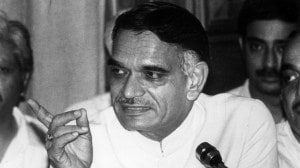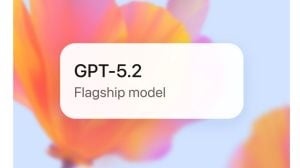On Constitution Day (November 26), President Droupadi Murmu recalled the role women members played in the Constituent Assembly, the body tasked with formulating the Constitution of independent India.
The 299-member Assembly had 15 women members, including prominent figures such as Sarojini Naidu, Sucheta Kripalani, and Vijaya Lakshmi Pandit. But it also had lesser-known women from diverse backgrounds who participated in debates on gender, caste and reservations.

Ammu Swaminathan (1894-1978)
In the book The Fifteen: The Lives and Times of the Women in India’s Constituent Assembly, authors Angellica Aribam and Akash Satyawali wrote that Swaminathan hailed from Palakkad, Kerala. Following her marriage to the much older Subbarama Swaminathan in her teens, she became interested in politics.
She strongly opposed the restrictions imposed on widows, such as shaving the head and renouncing jewellery, after seeing her mother’s experience. Swaminathan contested Central Legislative Assembly elections on a Congress ticket from Madras in 1945 and then became a member of the Constituent Assembly. She spoke about the Hindu Code Bill and its relevance for gender equality: “When she mentioned that the Bill affects the women of the country more than the men, the male-dominant House erupted into laughter,” the book said. Post-independence, she was elected to Lok Sabha from Dindigul, Tamil Nadu.
Annie Mascarene (1902-1963)
Mascarene was born in Trivandrum (now Thiruvananthapuram) in a Latin Christian family, considered to be at the lowest rung of the caste system. Despite her social status, she went on to study and teach law.
Lower-caste Ezhavas, Christians and Muslims could not vote in the local legislature at the time. Mascarene actively campaigned for a government based on a universal adult franchise, despite being targeted by her political opponents.
She later joined the Congress. As part of the Constituent Assembly, she spoke about the need for a strong Centre in the early days of the republic, while emphasising the autonomy of local governments. Mascarene contested as an independent candidate in 1952, winning from Thiruvananthapuram.
Begum Qudsia Aizaz Rasul (1909-2001)
Story continues below this ad
Qudsia’s father was a politician with roots in the royal family of Malerkota in Punjab. Her privileged background led her to formal education but not without objections, with an ulema issuing a fatwa against her convent schooling.
Qudsia and her husband decided to join politics in 1936. Though conservative groups criticised her candidature, she won from a non-reserved seat. Despite being part of the Muslim League, she was among the few members opposing separate electorates based on religion. Her views on the idea of Pakistan were more complex. She believed it would help uplift Muslims but possibly harm poor Muslims in India following a division.
Ultimately, she decided to stay in India. Post-independence, she became a UP Rajya Sabha member in 1952.
Dakshayani Velayudhan (1912-1978)
Velayudhan marked several firsts — she was the first Dalit woman to graduate in science in Cochin (now Kochi) and the first Dalit woman in the Cochin Legislative Council. Belonging to the Pulaya community, considered a “slave” caste, upper-caste professors in her college would refuse to show her practical experiments.
Story continues below this ad
After working as a teacher, she married a social worker at Mahatma Gandhi’s Sevagram Ashram in Wardha. In 1946, she was elected to the Constituent Assembly from Malabar, aged 34.
She disagreed with Ambedkar on the need for separate electorates, saying the provision went against nationalism: “He is the only leader of the Harijan community and his non-co-operation with the nationalist forces is a great tragedy…”
Unlike her peers, she could not continue a political career due to financial difficulties but remained involved in the Dalit movement.
Renuka Ray (1904-1997)
Ray was born in Pabna, present-day Bangladesh. Her father was a bureaucrat, while her mother was one of the first women students at Calcutta’s Presidency College.
Story continues below this ad
A meeting with Gandhi in 1920 led her to quit college and join the freedom struggle, where she went door-to-door to raise awareness. Ray later studied at the London School of Economics.
After her return to India and marriage, she was engaged in activism for women’s issues, such as the rights to divorce and inheritance. Ray also represented women’s organisations in the Central Legislative Assembly in 1943 and then became a member of the Constituent Assembly.
She opposed women’s reservation in legislatures, saying it would be “an impediment to our growth and an insult to our very intelligence and capacity”. Ray became a Lok Sabha MP in 1957.








































